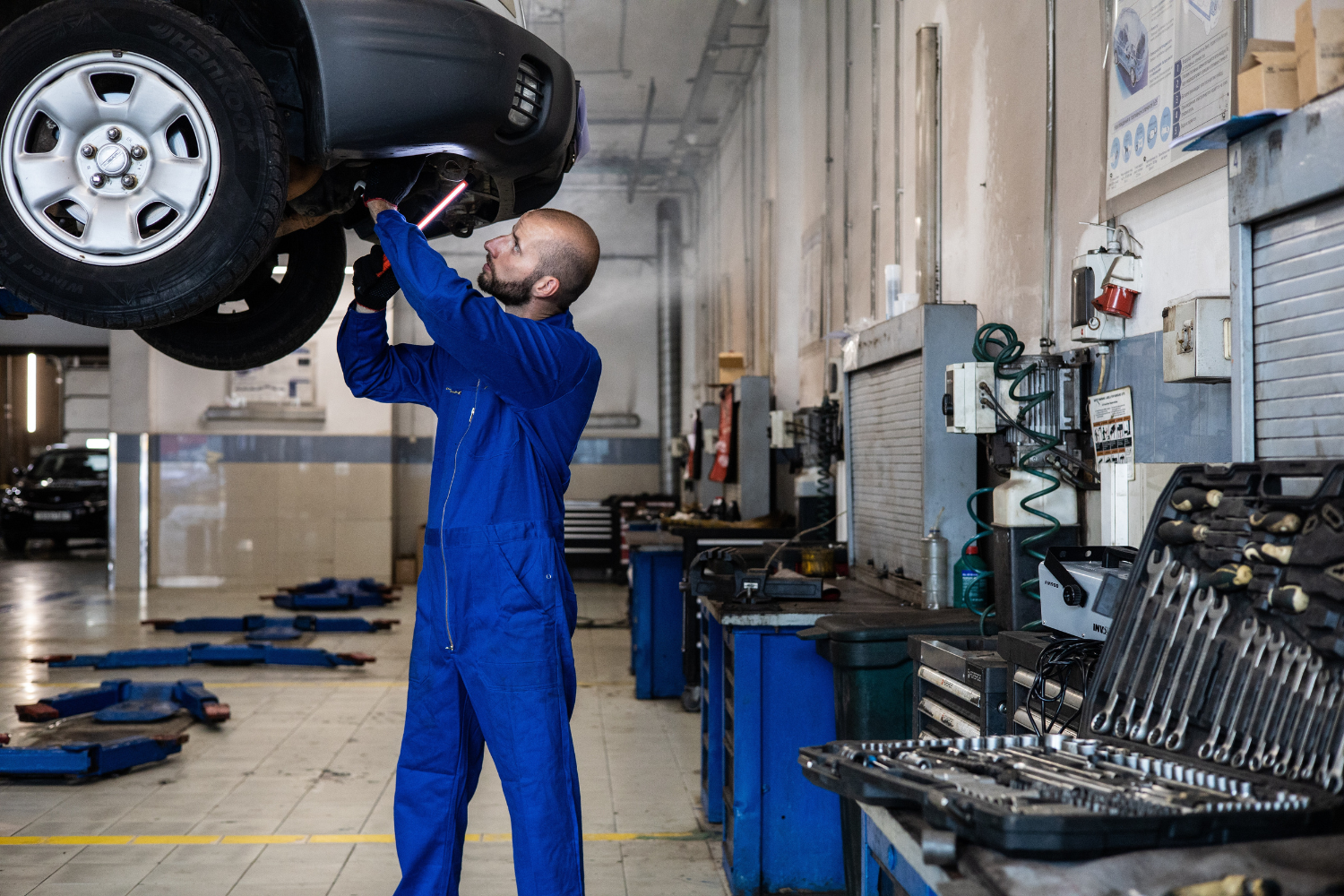Why Regular Vehicle Safety Inspections are Critical for Road Safety
April 21, 2023
Maintenance

Regular Vehicle Safety Inspections Critical for Road Safety
For every driver on the road, road safety is their priority. Regular vehicle safety inspections are crucial to ensuring that everyone is kept safe while driving. These inspections are essential for finding and fixing any problems that can jeopardize the safety of your car or other road users.
Here are some of the key reasons why regular vehicle safety inspections are critical for road safety:
- Finding and Fixing Safety Problems: Finding and fixing safety problems that can affect your car’s ability to function properly is one of the key goals of vehicle safety inspections. This could involve problems with the brakes, steering, tires, lighting, and other components. You can aid in preventing accidents and make sure that your car is operating securely on the road by taking care of these problems before they develop into larger ones.
- Ensuring Regulations are Obeyed: Regular car safety checks are mandated by law in many states. You can avoid fines and penalties by adhering to these rules and make sure that your car is operating in conformity with all relevant rules and laws.
- Defending Your Investment: Regular safety inspections of your car can defend your invested money. By spotting any problems early on, you can take care of them before they worsen and become more expensive. This can help your car last longer and lower your overall ownership costs.
- Increase Fuel Efficiency: Routine safety inspections of vehicles can also help to increase fuel efficiency. Finding and fixing these problems can help you save money on gas over time. Problems with your car’s fuel efficiency can be caused by things like tire pressure, alignment, and air filters.
- Encouraging Safe Driving Habits: Lastly, routine vehicle safety checks can aid in developing safe driving practices. You may increase other drivers’ awareness of the need for safe driving by ensuring your car runs smoothly and safely.
- The Comfort of Mind: The assurance that routine car safety checks offer is one of their advantages. Driving anxiety and tension can be reduced by knowing that your car is in good functioning order, allowing you to concentrate on the road ahead.
- Protecting Your Passengers: It’s crucial to make sure your car is working properly if you frequently have children or elderly family members with you on the road. Frequent car safety inspections can assist in locating any dangers that might endanger your passengers.
- Keeping Your Car in Working Order: Nothing is more annoying than a car breakdown, especially if it takes place on a busy road or in a risky location. Frequent car safety checks can help you avoid breakdowns by spotting problems early on, allowing you to take proactive measures to solve them.
- Regular vehicle safety checks might assist in increasing the market value of your car if you want to sell it or trade it in at any point. A well-kept car with a clean bill of health is more appealing to potential buyers and can fetch a higher price.
- Last but not least, routine car safety checks can aid in sustaining neighbourhood businesses like auto mechanics and inspection stations. You may support your neighbourhood’s economy and promote communal well-being by supporting these establishments.
Top 5 Most Common Vehicle Safety Issues Found During Inspections
We’ll examine the top 5 car safety issues discovered during inspections.
Brake Issues
Brake faults are among the most frequently discovered safety hazards during vehicle safety checks. There may be problems with the braking master cylinder, worn brake pads or rotors, or leaks in the brake lines or cylinders. A vehicle’s inability to stop quickly due to defective brakes increases the risk of accidents and injuries.
Tire Problems
Another thing to look out for during a car safety inspection is the tires. A vehicle’s ability to maintain traction on the road can be compromised by worn or damaged tires, particularly in slick or rainy circumstances. This may make it challenging to control your car and raise the possibility of collisions.
Electrical System Issues
The electrical system runs everything in your car, including the radio and headlights. It can, however, also lead to safety concerns. Batteries that are dead or on their way out, malfunctioning alternators and problems with the starter or ignition switch are common problems. Starting your car or operating it securely while driving may be challenging due to these problems.
Suspension and Steering Problems
Your vehicle’s stability and ease of control are maintained by the steering and suspension systems. Yet, using your car properly or maintaining alignment may be challenging if some components are worn out or damaged. Accidents may result from this, especially while driving fast or on unpaved roads.
Lighting and Signal Issues
Finally, lighting and signalling problems are frequently found during vehicle safety inspections. Burnt-out headlights or taillights, broken turn signals, and problems with the brake lights or emergency flashers are some examples. Using proper illumination and signalling is essential so other drivers can see you on the road and react accordingly.
Book an appointment online or call your local Trail Tire Auto Center for more information about safety inspections.
Back

